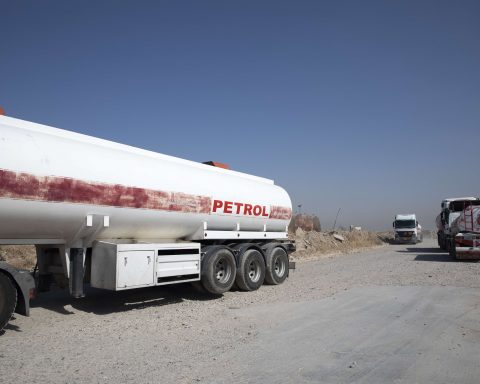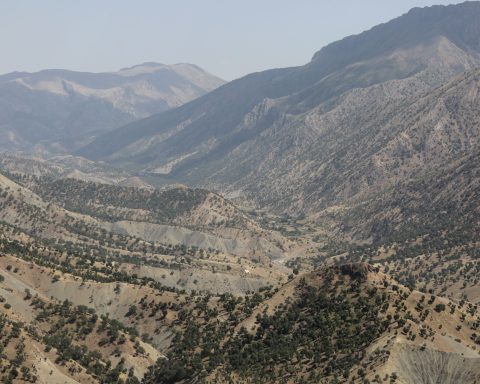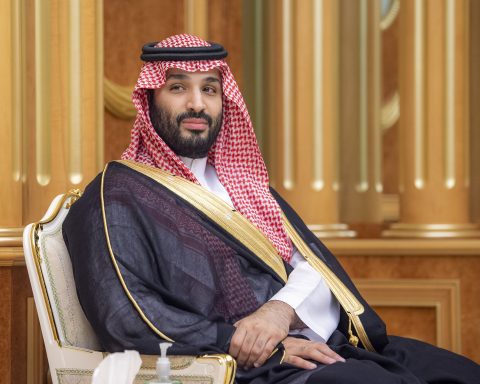Three people were killed and a fire started at Abu Dhabi International Airport after a drone strike by Yemen’s Houthi rebels targeted a vital oil plant in Abu Dhabi on Monday. As three fuel tanks exploded in an industrial area and a fire broke out at the airport, authorities stated “small flying objects” were discovered, as Houthi rebels launched “military operations” in the UAE.
The dead have been identified as two Indians and one Pakistani by police in the United Arab Emirates (UAE).
A fire broke out at ADNOC’s Mussafah Fuel Depot around 10:00 local time, and the company claimed it was working with authorities to “determine the exact cause.”
“ADNOC is deeply saddened to confirm that three colleagues have died. A further six colleagues were injured and received immediate specialist medical care,” it said in a statement.
After the attacks in the UAE, OPEC’s third-largest oil producer, crude rose to its highest level in seven years on Tuesday.
After the attacks, the Emirati foreign ministry said in a statement that “The UAE condemns this terrorist attack by the Houthi militia on areas and civilian facilities on Emirati soil … It will not go unpunished”. “The UAE reserves the right to respond to these terrorist attacks and criminal escalation,” it also added.
Upon taking responsibility for the attack, Yemen’s Houthi rebel group has threatened to attack additional Emirati installations in the future. Five ballistic missiles and several drones were used in Monday’s strike. According to one Houthi leader, the organization would continue to strike the UAE. “This operation is a prelude and there are still a lot of surprises in the pocket of our military forces,” Abdulmalik Al-Ejri told Al-Masirah TV channel, which is affiliated with the rebel group.
The missiles and drones were launched towards Abu Dhabi and Dubai airports, an oil refinery in Abu Dhabi’s Musaffah district, and other “sensitive” targets in the UAE, according to the group’s military spokesperson Yahya Saree. “The armed forces carried out … a successful military operation within the framework of an operation named Yemeni Hurricane,” Saree said in a statement broadcast on Al Masirah.
In a short period, many countries condemned the attacks in the UAE. According to his spokesperson, UN Secretary-General Antonio Guterres “condemned” the alleged drone attack in Abu Dhabi and urged “all parties to exercise maximum restraint and prevent any escalation.”
According to US National Security Adviser Jake Sullivan, the US “strongly condemned the terrorist attack in Abu Dhabi, which killed three innocent civilians.” “The Houthis have claimed responsibility for this attack, and we will work with the UAE and international partners to hold them accountable. Our commitment to the security of the UAE is unwavering and we stand beside our Emirati partners against all threats to their territory,” he said.
The deadly drone assault in Abu Dhabi claimed by Yemen’s Houthis was harshly denounced by France as well. “These attacks threaten the security of the United Arab Emirates and regional stability,” Foreign Minister Jean-Yves Le Drian said, expressing France’s “backing” for the UAE.
The Houthis have threatened action against the UAE in recent weeks, saying that “mercenaries” from the Gulf state had joined the fight for Marib, a Yemeni region where the Houthis began a major push last year to consolidate their authority over the country’s populated north. The Houthi assault on the capital has been halted in recent weeks due to UAE-aligned forces and coordinated Saudi airstrikes. The officials of the Gulf state take pleasure in the security effectiveness of the regional commercial center. The Houthis have claimed responsibility for attacks on Abu Dhabi’s nuclear power plant and international airport in the past, but the Emirati government has disputed these claims.
Emirati-flagged vessel the Rwabee was taken by the Houthis off the coast of Hodeidah on January 3, and subsequently published a video purporting to show military equipment on board, including military-style inflatable rafts, trucks and other vehicles, and what seemed to be a stockpile of guns. On Monday, Yemeni Houthi rebels have turned down a UN demand to free an Emirati-flagged vessel and its 11-member crew that they captured earlier this month, claiming the ship was carrying “military assets.”
For years, Houthi fighters have attacked Saudi infrastructure, which borders the militia’s heartland in northern Yemen. After the militia overthrew the internationally recognized government in 2015, Riyadh formed an Arab coalition to intervene in the civil conflict.
Drone attacks are a common feature of the Houthis’ attacks against Saudi Arabia, an ally of the UAE that leads the coalition fighting for Yemen’s government in the civil war. On Monday, the Saudi-led Arab Coalition announced it had intercepted three drones headed towards the Kingdom’s south.
Lastly, the Saudi-led coalition forces declared on Tuesday that they are conducting airstrikes on Sanaa in retaliation for the Houthis’ recent attacks on Abu Dhabi, leaving doors wide open for further developments in line with the drone strike in Abu Dhabi and Dubai.














